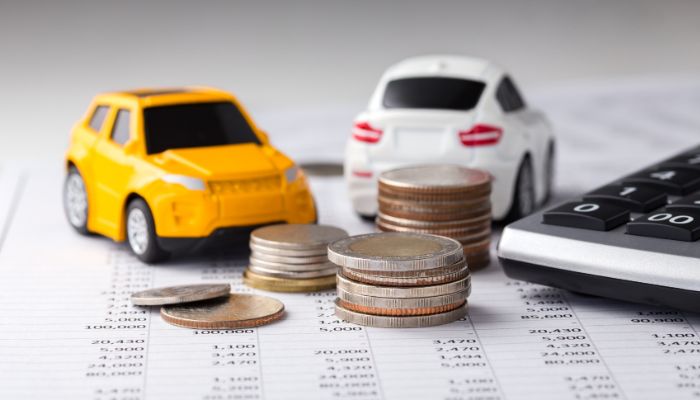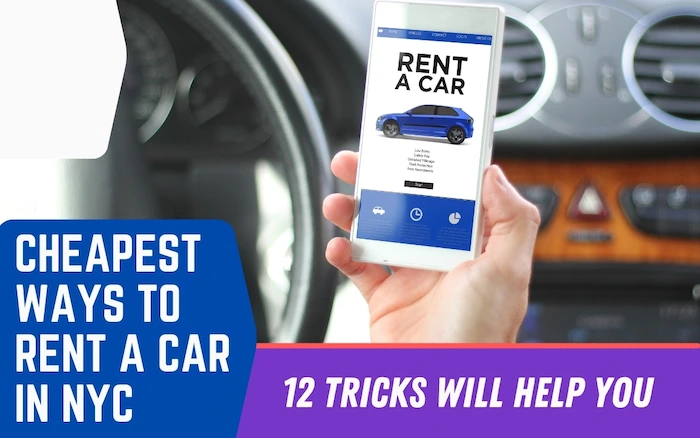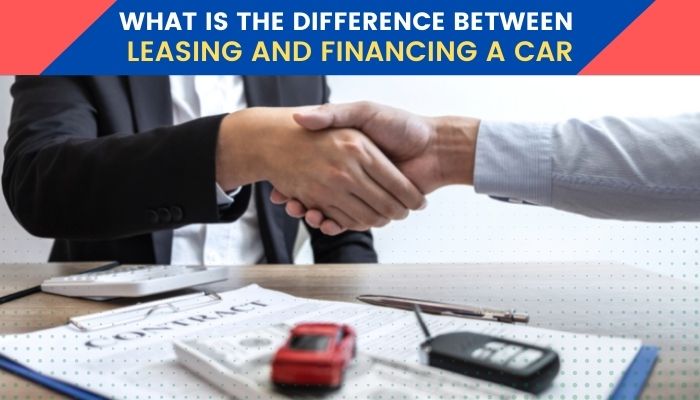How Do Lease Buyouts Work: Everything You Need To Know
A car lease is an affordable way to own one of the latest vehicles without a long-term commitment. Depending on the terms of your contract, you do not have to pay a down payment or worry about what will happen to the car when you need to purchase a different model. A lease contract helps buyers to avoid the challenges and cons of financing a vehicle.
On most occasions, everything is stipulated on your contract, including what will happen at the end of the lease contract. Naturally, you have to return the vehicle at the end of your lease or buy out the car, but we advise you to learn how do lease buyouts work before you opt to purchase a leased vehicle.
Buying out your leased vehicle is not difficult as you only need to pay cash the stipulated value or obtain a loan for the purchase. However, a lease buyout at the end of your contract is not always a good deal.
You will need to evaluate your contract and undertake market research to determine whether you should return or buy the vehicle. We look at how do lease buyouts work and when it is worth buying out your car to help you make an informed decision.
How Do Lease Buyouts Work?
At the end of your lease contract, you have an option to return, extend the lease or buy out the leased vehicle, but it is important you review your lease terms to find what is and not possible. Your contract details the residual value, which is the amount you will pay if you decide to purchase the car at the end of your lease term. It is always a good idea to negotiate the residual value at the lease signing to ensure you will have the best value if you choose to purchase the leased vehicle.
Keep in mind that you will not be able to negotiate the buyout price at the end of your lease term. Learning how do lease buyouts work before starting the buyout process will help you avoid costly mistakes.
You can purchase a leased vehicle early or at the end of the lease contract. We recommend you wait until the end of your term before buying the vehicle to get the best value. Nevertheless, there are situations where buying the vehicle early makes sense, but you will have to pay termination fees that make the deal expensive.
Buying out the car at the end of the term does not attract termination fees. You only need to visit your dealership and pay off the buyout amount to finalize the deal. You can pay in cash or seek financing from lenders.
When Should You Buyout A Leased Car?
You can purchase a leased vehicle at any time during the contract. Early lease buyout enables you to purchase the car before the contract ends. Early lease termination is less popular as it is usually expensive and complicated. The dealership can include early termination fees, which can make the deal more expensive.
In addition to the early termination amount, the dealership will also include the lease-end residual value and the remaining lease amount to the buyout price. We advise that you avoid an early lease buyout and instead wait until the end of your contract to purchase the vehicle.
Should You Buyout Your Car Lease Early?
It usually does not make financial sense to terminate your lease early, but there are situations when early lease buyout is a good idea. Although you should exploit other alternatives like lease swap deals before considering early lease termination, it might be a good idea to buyout your lease early under the following situations;
- The lease is no longer affordable – If you have lost your job or underestimated the lease cost and can no longer afford the monthly payments, it might make sense to end the lease contract early. It helps you avoid defaulting on your payments, which may add further complications to the deal. It is a good option if you have savings or can get a personal loan to pay for the difference.
- Attractive incentives – On some occasions, the dealership may offer incentives that make early lease buyout more attractive than an end-lease buyout. The offer is usually available to people in their last year or several months before the lease-end. The dealership can allow you to negotiate the buyout value and incentives that cancel out the early termination costs.
Things You Should Know Before Considering Early Lease Buyout
We do not recommend you start the process of terminating your lease early blindly, irrespective of your situation. Knowing how do lease buyouts work will make the process smooth, but understanding factors that affect your lease contract will help you get the best value. Some of the important factors you should research before walking to a dealership for an early buyout include:
- Equity – You can have positive or negative equity on your lease. Negative equity is common during the early lease days when most of your monthly payments pay for depreciation and interest. Giving a large down payment when signing the lease agreement can help reduce negative equity. Positive equity occurs when the value of your car is more than the remaining lease balance. It occurs if you had put a significant down payment or the car retains market value better.
- Residual value – Residual value is the amount you will pay for the vehicle at the end of your lease contract. The amount is usually predetermined at the lease signing. Still, some dealers can offer you a chance to negotiate the amount as an incentive to help you buy out the vehicle early. It might not be good to buy out the car if the residual value is less than the market price.
- Depreciation – How quickly or slowly your car depreciates will affect the amount you will pay for the buyout. It is a good idea to wait up to the end of your lease contract for cars with high depreciation as it allows you to pay for the depreciation over a longer period.
- Applicable charges – Review your lease contract to find all the applicable charges you will pay if you terminate the agreement early. Higher termination fees will make the buyout more expensive.
- Car’s condition – The dealership expects you to return the vehicle in good condition. Excessive tear and wear can make the dealer charge repair costs to return the car to a sellable condition. On some occasions, buying out the car can help you avoid high repair costs, especially if inspections are not mandatory for buyouts.
When Does It Make Sense To Buyout A Car Lease?
A lease buyout allows you to buy the car you are driving at a predetermined cost, which can be a good or bad thing, depending on your situation. Some of the situations when buying out your lease is a good option include:
- Residual value is less than market price – How much would you pay if you were to buy the vehicle in its condition? Carry out market research to find the market value and compare it with the residual value. Since the buyout amount in your contract is an estimate, you might find the car is worth much more than the determined figure. It might be a good idea to buy out the vehicle if the car is worth more than the retail value as you can sell it for a profit.
- You love the vehicle – A lease offer gives you the chance to try out a new car without a long-term commitment. During the lease period, you can love the car’s performance and desire to keep the vehicle longer than the lease term. Most dealerships offer lease terms of between two and four years, which means you have to purchase the vehicle to use it for an extended period or keep it part of your collection.
- It is affordable and meets your needs – Why would you give up the chance to buy an affordable car that meets your needs? Buying out a leased car helps you purchase the vehicle for what it is worth without paying for depreciation, which is part of your monthly lease payments. It makes financial sense to purchase the vehicle if it matches your budget and meets your needs.
- High turn-in fees – The dealership expects you to return the vehicle in a sellable condition. If you have excess wear and tear, the dealer may add hefty repair fees. It can make more sense to buy the car instead of paying high turn-in fees. You may also face high turn-in fees if you have excess mileage. Get a pre-inspection from the dealer to help you know the repair costs and mileage overage fees before the return date to help you plan in advance on the best course of action.
When Should You Avoid A Car Lease Buyout?
Sometimes returning the vehicle to the dealer makes more sense than buying it. Some of the situations when you should avoid buying out a leased car include:
- Market value less than buyout amount – It does not make sense to pay a higher buyout price if you can buy the same car at a lower price. The market price of your leased vehicle should help you determine whether a lease buyout is good or not.
- The car is damaged – You should avoid a lease buyout if the car has been involved in a serious accident. A serious accident will negatively impact the value of the car even after repairs. The market value for a car involved in an accident is lower than an undamaged vehicle.
- It does not meet your needs – It is not ideal to buy a vehicle that does not meet your needs. If the car does not meet your travel needs or the performance is wanting, you should invest in a different vehicle.
- High maintenance costs – Some cars require higher maintenance than others. If you are spending a lot of time in repair shops, you should avoid buying a leased vehicle. You should buy out a car with a lower maintenance cost.
Car Lease Buyout Tips
To get the best value from your investment, you must understand how to do lease buyouts work and things that you can negotiate for a better deal. Some of the car lease buyout tips that can help you get a better deal include:
- Consider lease timing – The timing of your lease buyout will determine the cost of your purchase. An early buyout can make the vehicle more expensive as you may have to pay termination fees. You are likely to get a better deal at the end of your lease contract.
- Assess the value – Before making a lease buyout decision, you should carry out thorough market research on its value. The market research will help you determine the market value of your car to help you negotiate a better deal.
- Shop around for financing – While the dealership may offer buyout financing, it is a good idea to shop around for financing. You can get better interest rates and terms from independent financial institutions.
- Wait until the dealership makes contact – Although you might be tempted to contact your dealership and start negotiations to buy out your car, you should wait until the dealer makes the first move. Contacting the leasing company can reduce your chances of getting favorable terms. The dealership will usually contact you about 90 days before the lease expires and offer attractive incentives to arouse your interest in buying out the lease car.
- Learn how to negotiate – Most dealerships do not allow negotiations on the residual value, but you should not be afraid to raise the issue. Ask the seller for purchase incentives, financing discounts, and purchase-option fee waivers.
Bottom Line
Understanding how do lease buyouts work and when to buy a leased car can help you save money and make the process straightforward. We recommend that you wait until the leasing company makes the first move before showing an interest in buying out the vehicle to help you get favorable terms. Furthermore, purchasing the vehicle at the lease end offers better value as you do not have to pay termination fees and other applicable charges.




